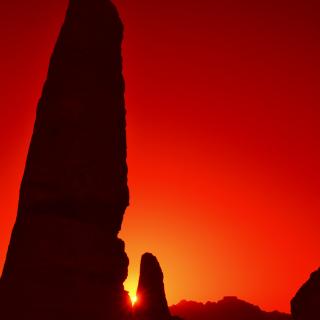Bibcode
Vázquez, M.; Vaquero, J. M.; Gallego, M. C.
Referencia bibliográfica
Solar Physics, Volume 289, Issue 5, pp.1843-1861
Fecha de publicación:
5
2014
Revista
Número de citas
13
Número de citas referidas
13
Descripción
Catalogues and other records of aurora-borealis events were used to
study the long-term spatial and temporal variation of these phenomena in
the period from 1700 to 1905 in the Northern Hemisphere. For this
purpose, geographic and geomagnetic coordinates were assigned to
approximately 27 000 auroral events with more than 80 000 observations.
They were analyzed separately in three large-scale areas: i) Europe and
North Africa, ii) North America, and iii) Asia. There was a clear need
to fill some gaps existing in the records so as to have a reliable proxy
of solar activity, especially during the 18th century. In order to
enhance the long-term variability, an 11-year smoothing window was
applied to the data. Variations in the cumulative numbers of auroral
events with latitude (in both geographic and geomagnetic coordinates)
were used to discriminate between the two main solar sources: coronal
mass ejections and high-speed streams from coronal holes. The
characteristics of the associated auroras correlate differently with the
solar-activity cycle.
Proyectos relacionados

Arqueoastronomía
Este Proyecto tiene como objetivo fundamental determinar la importancia de la astronomía como parte integrante de la cultura y de la civilización desde el Paleolítico a nuestros días. El interés del grupo se centra, en especial, en los pueblos del antiguo ámbito Mediterráneo desde el Atlántico al Oriente Medio, con una dedicación especial a España
Juan Antonio
Belmonte Avilés